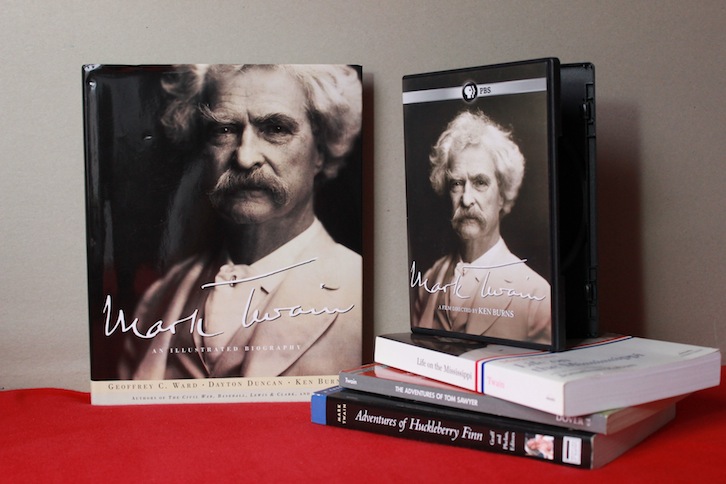As we close our first year of operation and look forward to 2015, we have to say it’s been a bumpy road. A lot of things went wrong. More things went right. In most ways, it’s been just like our careers as writers: tough, but worth it. Coming to the end of your writing year, you might be tempted to look at the “Con” column and think about giving it up. Here are ten reasons not to. There Has Never Been a Better Time to Be a Writer Forget what some doomsayers like Scott Turow might tell you – the Internet has democratized distribution, simplified publicity and created massive demand. These changes might make Stephen Kings and J.K. Rowlings a bit less common, but it’s easier than ever to make your living…
Early Twain by Mike Rochester
Buried beneath alternate praise and censure of his “Great American Novel,” Huckleberry Finn, lies a wealth of widely unheralded work by Mark Twain: his short stories. Twain’s penchant for writing in the vernacular translates magnificently to his tall tales, overheard while mining for silver in Nevada. His characters run the gamut from rugged and folksy to clever and charismatic, creating a circus troupe of dusty allure. In his 1880 short story “Jim Baker’s Blue-jay Yarn,” Twain retells a tale about “a middle-aged, simple-hearted miner who lived in a lonely corner of California,” who claims he can understand the language of animals. What follows is a short but tall tale of what he overhears a blue jay saying one day in the woods. As is the case with many of Twain’s yarns, the joy is…
“War and Peace” Reading Group – You’re Invited!
Leo Tolstoy wrote one of the world’s greatest novels, War and Peace, between 1861-63. The backstory goes like this: He toyed with several versions [with pen and paper – remember, no computers back then!] until 1866. He began a massive revision he did not complete until 1869, when it was finally published. It is at once a story of an aristocratic family, the invasion of Russia by Napoleon, a romance, a tragedy, an attempt by a novelist to set history right. In short, it’s one of the world’s great stories, fiction or nonfiction. You love to read. We love to read. This is a great book, but one you might not tackle on your own. Let’s read it together. Just in case you’re on the fence about reading a novel over 1,200 pages in length, check…
Jack Kerouac: “The road is life”
I have a photograph of Jack Kerouac typing his famous piano-roll manuscript of On the Road hanging on my study wall. I saw the scroll when I visited the museum in Lowell, Massachusetts. It was amazing to see it stretched out. Jack purportedly wrote it in a three-week, hyper-caffeinated marathon in his mother’s apartment. She made the coffee and taped the pieces of paper together. Three weeks. Then he revised it for three years. You could sum up his philosophy in the four words quoted above: “The road is life.” Lowell has honored its once-maligned author by giving him a new headstone at his grave site. You can read about it here. If you’d like to know a bit more about Kerouac, here is a fine essay about him and his writing. The photo of…
Willamette Writers Conference Just A Week Away!
One of the leading writing conferences in the country, the Willamette Writers Conference convenes next Friday, August 1, and runs through Sunday, August 3. Launched in 1969, in recent years attendance has topped 1,000 writing and publishing mavens from around the world. If you’re anywhere close to Portland, Oregon, or would like to see what Portlandia is really like, I hope you’ll attend. There are over 60 workshops and special events. I’m particularly flattered to be presenting three workshops in the Master’s Series in Business Writing: Your Professional Writing Career, Writing Your First Book, and Ghostwriting. But more than that, I’m excited to have the chance to meet so many fellow (male and female) writers and presenters. I thought you might like to meet a few of them yourself. My colleague Jason Brick, who has worked…

